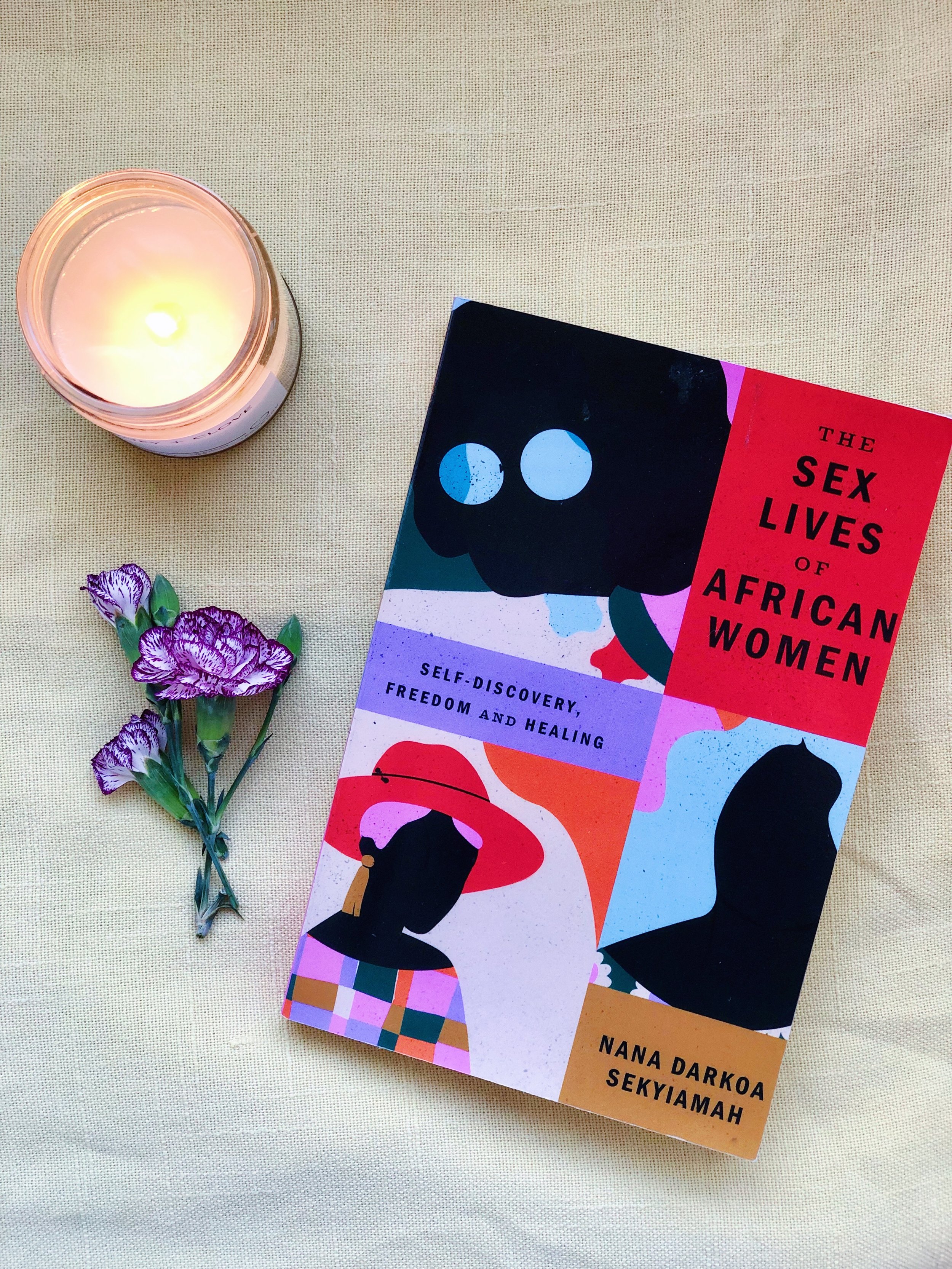Title & author
The Sex Lives of African Women by Nana Darkoa Sekyiamah
Synopsis
The Sex Lives of African Women by Nana Darkoa Sekyiamah is a book that demonstrates the exact importance of sex education—and the importance of it being intersectional, inclusive, and, to put it simply, truthful. But even more so, it’s a document of stories too often overlooked and cast aside because of the discrimination against women of color and LGBTQIA+ people, particularly those in non western societies.
Who should read this book
Everyone
What we’re thinking about
The diversity of sex and sexuality
Trigger warning(s)
Physical violence, sexual violence, abortion, sexism, mental health, racism, transphobia, homophobia, Islamophobia, fatphobia, ableism, xenophobia
Across the U.S., sex education is only mandatory in twenty-four states (plus Washington D.C.). And even in those states, decisions on how and when these lessons are taught are up to the individual school districts. So, sex education oftentimes is ignored, avoided, or drilled down to the most basic anatomical descriptions that ignore pleasure, abuse, queer experiences, etc. The Sex Lives of African Women (Astra House, 2022) by Nana Darkoa Sekyiamah is a book that demonstrates the exact importance of sex education—and the importance of it being intersectional, inclusive, and, to put it simply, truthful. But even more so, it’s a document of stories too often overlooked and cast aside because of the discrimination against women of color and LGBTQIA+ people, particularly those in non-western societies.
Through over thirty interviews, Darkoa Sekyiamah paints seemingly infinite depictions of love, lust, and self-pleasure. Split into three sections—self-discovery, freedom, and healing—the book demonstrates how sex (whether with oneself or with others) can be used to explore those states of being. From stories of polygamy to sex work to erotica to long-term relationships, numerous forms of sexual experiences are explored in this book.
“In a context of well-being and safety, monogamy can thrive, but it comes from within; it is not an imposition by others,” says one woman (Darkoa Sekyiamah, 77). Another declares: “That’s when I learned about Black love and how it’s more than just romantic love—it’s love for you, love for your people, love for your history, and for your children” (232). And there’s the woman who declares her different partners “are fulfilling different needs that I have, sexualy, emotionally, and intellectually. I want them both for what they bring into my life” (262). It’s not that these women rewrite the rules; rather, it’s that they voice the stories and perspectives that mainstream, western, hetero/cisnormative culture prescribes as the norm. “They do this by questioning and resisting societal norms while creating new norms and narratives that allow them to be who they truly are” (3). And that is what makes these stories, this book, a political act.
The founder of the blog “Adventures from the Bedrooms of African Women,” Darkoa Sekyiamah writes like a blogger in many ways—and that’s by no means a criticism. Rather, it lends itself to the story; the conversations she has with the profiled women are intimate, individualistic. The prefaces she provides read like voiceovers, as if we are being led into the room in which the interview is being conducted. And this intimacy, the realness and rawness of these stories and how they are shared, the joy that comes across, the pain, all of this is how we should be taught about what sex is. The story dilutes one dimensional depictions of sex and pleasure, going against literature’s tendency to perpetuate the same stories over and over again with the likes of Sex and the City and Three Women. By creating space for open conversations about sex, as experienced by women of color, LGBTQIA+ individuals, disabled women, religious women, women from different socioeconomic statuses, and many more backgrounds and identities, Darkoa Sekyiamah’s book asserts itself as a much-needed addition to the feminist canon and makes clear that these stories will no longer be overlooked.
“Freedom is not a destination that one arrives at and can choose to stay there forever and ever. Freedom is a constant state of being, an energy and a state that we need to nurture and protect. Freedom is a safe home that one can return to over and over again.”
Join in
Contribute your thoughts by using the “Leave a comment” button found underneath the share buttons below. Answer one of these questions, ask your own, respond to others, and more.
What story resonated most with you and why?
How did your sex education courses or discussions shape the way you perceive(d) sex?
Please note that all comments must be approved by the moderator before posting. We reserve the right to deny offensive or spam-related commentary. And, for the wellbeing of our BIPOC, LGBTQIA+, and/or disabled-identifying community members, please respect the personal capacity to address questions on certain topics. We encourage you to search for the answer in a great book or online instead. Thank you!


